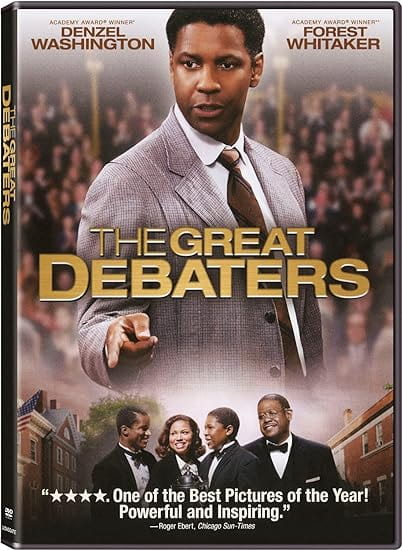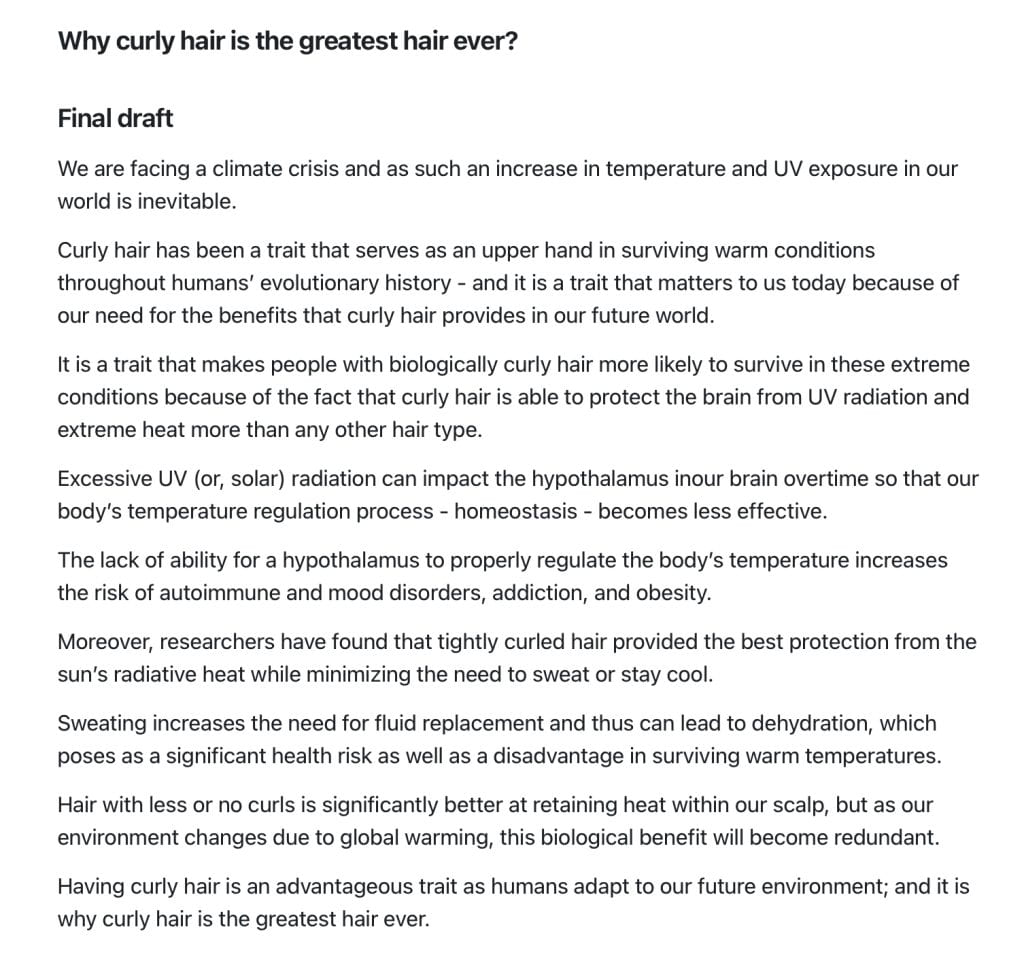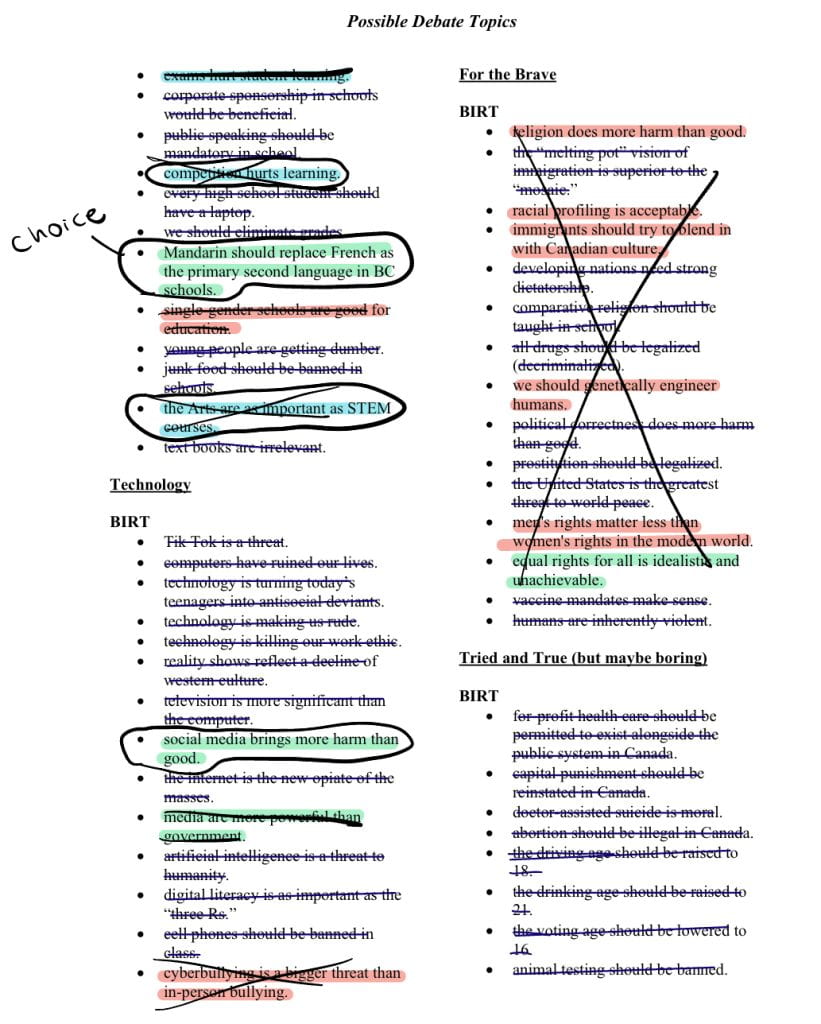🌲How can we use a formal debate to convince an audience we’re right?🌲
🌲 Hello and welcome back to the forest of learning 🌲
In this post you will find my reflection of my most recent project “The Great Debaters”. This project allowed me to learn all about how to formulate a strong argument and perform an effective debate. We worked individually to argue either affirmative or negative and had the freedom to choose our opponent and topic. Our final presentation was done at the PLP exhibition in front of a small audience of PLP learners and parents. I was really nervous for this project because I didn’t feel confident in my public speaking skills, but I learned a lot from this project and I feel much more confident in myself now. If you would like to absorb some more information about what I’ve learned throughout this project, please keep reading 📖
To start off this project, we watched the “The Great Debaters”. The movie follows a debate team from a small college, and it primarily focuses on the challenges the team faces as they strive for success in the racially segregated society of the time. I personally found that this movie helped me gain a further understanding of what debate can look like in the context of performance, structure, preparation, and values. I also learned the impact of words and how delivery of those words can truly make a beautiful impact — I found it to be very inspiring.

So, we saw how debate can look like through a movie, but how exactly can we learn to be a debater ourselves? The first step is to practice. To do this, we individually created a short 8 to 10 sentence long speech using the prompt “The greatest __ ever”. In order to write our speech, we needed to choose a topic, conduct thorough research, include sufficient evidence, and convince our audience to believe our topic is objectively correct.
I wrote my speech on the greatest hair ever, and bet you couldn’t guess my subject
I know.. shocker.
I chose this topic because I genuinely wanted to understand a bit more about curly hair. Having curly hair can be a big hassle to the extent that many people choose to straighten their natural curls and avoid learning how to tend to them just because of the fact that it is “annoying” or “takes time” or “makes them feel ugly”. It’s a conversation I’ve had a lot with people around me and the narrative that curly hair isn’t worth being taken care of is something I wanted to challenge. I really enjoyed this activity because I was able to listen to podcasts, watch videos, read articles and research papers, and generally just investigate a topic of interest. I learned a lot about how to filter through sources to find relevant information. I also found that I struggled with deciding main points and messages to include in my speech, but through this activity I was able to find a process that helped determine my strong points and that this process ended up coming in handy when it came to my speech later in the project. I ended up writing a speech that I felt happy with, and you can find it below ⬇️
Here is my first draft of the speech:

This speech was used throughout the project as a sort of ‘guinea pig’ speech to help us practice our delivery skills. We also revised our speeches to include more evidence, parallel structure, and emotional appeal. These revisions were done throughout the “building knowledge” portion of the project as a tool to implement our understandings from lessons in class and apply them onto a ready-made speech. Click here to view the master document with each of my revisions, sources, and progress for this activity.
My final “Greatest Hair Ever” Speech:

Now, as I mentioned previously, we need to perform a debate by the end of this . So without further adieu, let us get into the meat and potatoes of the project; the big scary debate.
Debate Preparation
The first step of this portion of the project was to find an opponent and choose a topic. My opponent for this project was Ariane. I am very happy that she was my opponent for this project. In all of my classes this semester, she is my learning buddy and we’ve grown to have a very lovely dynamic. I was pretty nervous to debate against her for this project because Ariane thinks in a way that is very different from the way that I do. She helps me understand thoughts and ideas that I would have never come to understand to the same level on my own. I knew by opposing her in this debate, It would be a great challenge.
As for choosing the topic, Ariane and I narrowed down a few topics that we wanted to debate. We were deciding between “Social media does more harm than good” , “The arts are as important as STEM courses” and “Mandarin should replace French as the primary second language in BC schools”. I wish we had chosen a better process for decision making, but alas we resorted to the good ol’ picker wheel and fate decided that our topic should be “Mandarin should replace French as the Primary second language in BC schools” with Ariane arguing the negative, and myself arguing the affirmative.

After deciding our topics we began the first investigation which consisted of establishing our guiding inquiries for this project. I did this through creating two charts consisting of what I know already, what I need to know in order to successfully defend or refute my resolution, and where I will find that information. From this activity I was able to start forming a sense of direction for how I would approach my debate topic.
Click HERE for my guiding inquiry
Before writing, quality preparation was needed. We did this through a thorough research process. We were required to find at least 3 quality sources that provide relevant, accurate, valuable, and trusted information for our debate. We analyzed sources using the CRAP system; Currency, Reliability, Authority, and Purpose. Research took me a very long time and lots of effort. I wanted to find great sources and evidence. Both for my argument, and also to prepare for my rebuttal. I wanted to find research that covers every aspect of this topic – which certainly isn’t an easy feat. Most of my researching took place in the library, where I would spend hours reading through my vast list of sources. I must have read through about fifty, and only decided to analyze a small portion of them. My favourite part of most assignments is the research portion because I learn so much from reading through information and it makes me feel more prepared to tackle challenges with logic.
HERE is my research document
As I mentioned previously, we learned a lot about what makes a debate a great one. We learned about techniques in the format of a speech like parallel structure, we learned how to project our voices through presenting our practice speech in the cafeteria, we were given feedback on our presentation skills though a reading a short speech in front of the class, and generally underwent a multitude of learning opportunities to help us feel prepared to deliver and write a fantastic debate. From these activities, I personally gained more comfort in my abilities, and challenged myself to question what I actually knew about debate, which, before this project was certainly not a lot.
With my research completed, I narrowed down my main points and began to write. One of the biggest challenges I faced during this time was working within the word count/time limit.
Writing concisely has always been an area of challenge for me. I struggle with making my thoughts uniform. I feel hat the beauty of concise writing is that it is completely complex in its simplicity. My brain is so filled with thoughts that I find it incredibly difficult to isolate the quality ones, and I feel that that is evident in my writing in this first draft. When looking at my first draft now I see so many irrelevant parts of it, but at the time I was completely oblivious to identifying the irrelevant parts. This lack of awareness created a big challenge for me for I did not know what to cut out. I hope that in the future my writing can be concise right off the bat, but I know it will take a lot of growth for that to happen.
HERE is my first draft
Between my first and final draft, a lot had changed. Through peer feedback, teacher feedback, lots of practice, and general self reflection, I gained a lot more confidence in my speech. I think the thing that made my piece of writing most improved was verbal practice. I’ll talk a bit more about that later..
For now, HERE is my final draft
Another component of the debate was the rebuttal – the thing I believe everyone in my cohort was dreading. Delivering a good rebuttal would mean critically thinking, understanding various perspectives, remaining organized, improvising as you speak, and being confident and clear in your delivery. I created a rebuttal preparation sheet that would anticipate my opponents potential points and how I would rebut them, but there was always a chance that my opponent would choose to focus their argument on something that I did not anticipate (spoiler alert: that actually happened!). In order to gain confidence delivering my rebuttal, I asked my peers and family members to help me prepare.
Verbal practice for refining a speech was crucial in my process as it helped me articulate ideas with clarity and precision, ensuring effective communication. It allowed me to fine-tune my tone, pacing, and emphasis. Through repeated verbal practice, I learned to confidently deliver my speech and rebuttal while simultaneously improving the content of them. Throughout the process of my debate, I would say I probably spent the majority of my time and effort just practicing, and it payed off on the day of my debate.

Exhibition
On the day of December 21st, I presented my debate in front of a real audience at the PLP exhibition. But before I did, I had a few other roles and responsibilities. Before the exhibition started, I worked along with a few people to clean up the rooms for the debate and create the voting cards. I enjoyed the time before the exhibition because I enjoyed working collaboratively with my classmates towards a collective effort. It felt very relaxed and easy and it made me really appreciate the community in PLP. I used the time before the exhibition to practice even more, and before I knew it, the exhibition had started.

Nervousness came in waves. Ariane and I were the last debate, which meant throughout the night I watched my peers debates and conducted my other roles. One of these roles was being the host of Declan and Sean’s debate and also filling in for three other hosts who didn’t end up showing up. Throughout the night I would fluctuate from feeling confident and excited to completely terrified. What if my argument wasn’t good? Or if Ariane brought up points that I couldn’t rebut? What If I stuttered or went over time? Or if I dropped my papers in the middle of my debate? So much could go wrong. As I went through the night I got better at grounding myself and staying calm.
Before our debate, I played a game with Ariane where we first listed off animal names back in forth in order of the alphabet. It sounds stupid, but it helped me feel a lot better. It reminded me how much I love I have for my friend. It reminded me how much love I have for myself. I could have called in and faked being sick, or simply chosen not to attend the exhibition and avoided my fears. But I didn’t. I showed up and I knew that whatever happened during our debate, I would be incredibly proud of myself and proud of my friend. And so, as Ariane and I finished up from animals and moved on to fruits, we entered the room where our debate would take place.
You can watch the debate below ⬇️
Overall, it was a bit of a blur. I had presented my speech and finished exactly on time. I didn’t stumble, I was confident and had good pacing, and overall am just incredibly proud of how I went about presenting my speech. When ariane had presented her debate, I was taken aback by her argument. It was very strong! And she brought up points that I had never thought of planning for. When it came time for my rebuttal, I completely improvised it. And while it wasn’t bad, I wish I would have prepared for it better. When I think back at my debate, I wish I would have done a lot of things differently. But I am proud of what I did do. I accomplished my fears and I did so while exceeding my own personal expectations. I am so darn proud of myself.

🌲 So, how can we use a formal debate to convince an audience we’re right? Well, we can prepare ourselves, develop a strong argument, dress appropriately, and deliver each word with confidence. Throughout this project, I learned so much about how I can become a great debater. I am proud of the growth I have shown throughout the course of this project and I’m excited to apply the skills I have learned to my future endeavours. 🌲
I hope you enjoyed reading. Thank you so much for watching me grow in the forest of
🌲learning🌲
























Leave a Reply